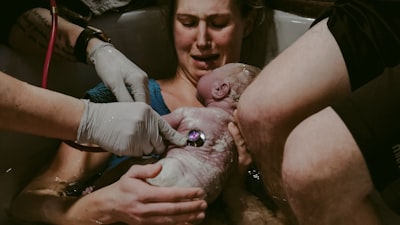Fertility Clinics Under Fire: What Shocks Like the California Bombing Reveal About Trust, Technology, and the Future of Reproduction
Introduction: When Trust in Science Is Shaken
In an era marked by remarkable advances in reproductive technology, clinics that once symbolized hope for millions have now found themselves at the crossroads of controversy and danger. The recent news—a suspect linked to the California fertility clinic bombing dying in federal custody—has sent shockwaves far beyond the walls of the clinic itself. This event, unusual and alarming, raises urgent questions about the security, ethics, and public perception surrounding modern fertility practices. But why are fertility clinics targeted, and what does this mean for the future of science, law, and society?
Why Are Fertility Clinics Becoming Targets?
The Rise of Rage and Distrust
Historically, attacks on medical facilities were rare, but increasing incidents tied to ideological conflicts, personal tragedies, or cyber vandalism tell a sobering story. Fertility clinics, by their nature, occupy a unique intersection of science, ethics, and deeply personal emotions. Every year, over one million couples worldwide seek in vitro fertilization (IVF) or related services, according to the International Committee for Monitoring Assisted Reproductive Technologies. As these services become more accessible, so too do the ethical debates surrounding embryo storage, genetic modification, and the rights of donors and recipients.
High Stakes, Heated Emotions
Stories of lost embryos, destroyed eggs, or denied access often spark bitter lawsuits and, as seen in the recent California case, more extreme reactions. Trust—once the bedrock of the doctor-patient relationship—is at risk of being eroded by fear and misinformation.
Security in the Age of High-Tech Healthcare
Vulnerabilities in Modern Medical Systems
The very technologies that make miracles possible—digital records, advanced lab equipment, automated storage—are themselves vulnerable. According to a 2023 survey by CyberMDX, over 60% of medical organizations reported a significant security breach in the past five years. Fertility clinics, with their valuable patient data and sensitive biological materials, make for prime targets not just for ideological attackers but also for cybercriminals and extortionists.
Physical vs. Digital Threats
While many clinics invest heavily in cybersecurity, physical security protocols are sometimes neglected. The California bombing was a tragic reminder that threats are not just virtual. Ensuring the safety of embryos, genetic data, and patients now calls for a comprehensive approach blending high-tech tools with old-fashioned vigilance.
Societal Reflex: Ethical Dilemmas and Public Perception
Are Fertility Clinics Ethical Battlegrounds?
Assisted reproduction challenges long-standing beliefs about life, lineage, and the boundaries of technology. From "designer babies" to the debate over unused embryos, society has not reached consensus about what should be allowed—or forbidden—in the fertility domain.
The Right to Parenthood vs. Protection of Life
Passionate groups argue over moral lines: Should unused embryos be discarded? Who decides the fate of frozen eggs in the event of divorce or death? Is editing out genetic diseases ethical—or does it cross into dangerous territory? The American Society for Reproductive Medicine estimates there are over one million frozen embryos in the US alone, each representing a potential legal and moral quagmire.
The Impact of High-Profile Attacks
When violence or sabotage occurs at these clinics, public trust in reproductive science takes a direct hit. Recent surveys show that over 40% of Americans report feeling “concerned” or “very concerned” about the ethics and safety of fertility treatments, a number that spikes following highly publicized attacks.
The Legal Front Line: How Are Laws Responding?
Gaps and Oversight
Although the field of reproductive medicine is tightly regulated, gaps remain. Federal law governs many aspects, but much is left to state discretion. After the California incident, calls were renewed for stricter oversight—not only to protect physical premises but to standardize how clinics warehouse, handle, and destroy embryos.
Lessons from History
This isn’t the first time medical progress has rocked the legal world. Consider the early days of organ transplantation or the controversies over stem cell research; in both cases, legal frameworks lagged behind scientific advances, sometimes with tragic consequences.
Bold Predictions: What the Next Decade Holds
In the wake of the California bombing, we are likely to see:
- Tougher Security Mandates: Expect federal guidelines on both physical and cyber security for fertility clinics.
- Wider Public Debate: As IVF and genetic technologies become mainstream, confrontations over everything from insurance coverage to embryo rights will grow more polarized.
- Tech Innovations: Artificial intelligence, blockchain, and biometric access may become standard in protecting future generations—quite literally.
Reflection: Rebuilding Trust in the Reproductive Age
Beyond the Headlines
Tragedies like the California fertility clinic bombing force society to confront uncomfortable truths: our hopes, fears, and unresolved questions about the intersection of life, science, and morality. For the millions confronted with infertility, these clinics remain beacons of hope. For others wary of rapid scientific change, they are lightning rods for controversy.
What Can We Do as a Society?
- Support Evidence-Based Policy: Push for public debate rooted in science, not fear or ideology.
- Empower Patients and Providers: Demand transparency and education from clinics.
- Stay Vigilant, Not Fearful: Advocate for balanced security measures that protect without infantilizing or stigmatizing.
Conclusion: Where Do We Go From Here?
The real legacy of events like the California bombing isn’t just in headline-making tragedy but in the urgent dialogue it sparks—a dialogue that will shape the future of families, science, and society itself. As we navigate this brave new world, only by facing our fears, asking the hard questions, and insisting on both safety and compassion can we ensure that miracles in medicine remain miracles for all.
This article was inspired by the headline: 'Suspect linked to California fertility clinic bombing has died in federal custody'.

Comments
No comments yet. Be the first to comment!